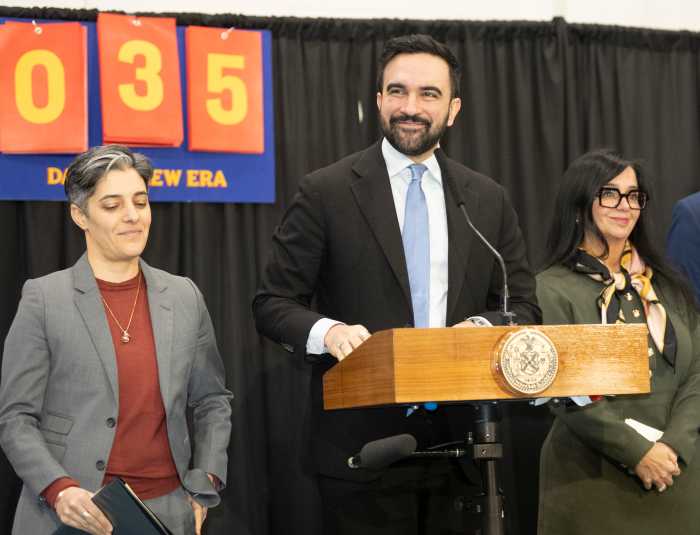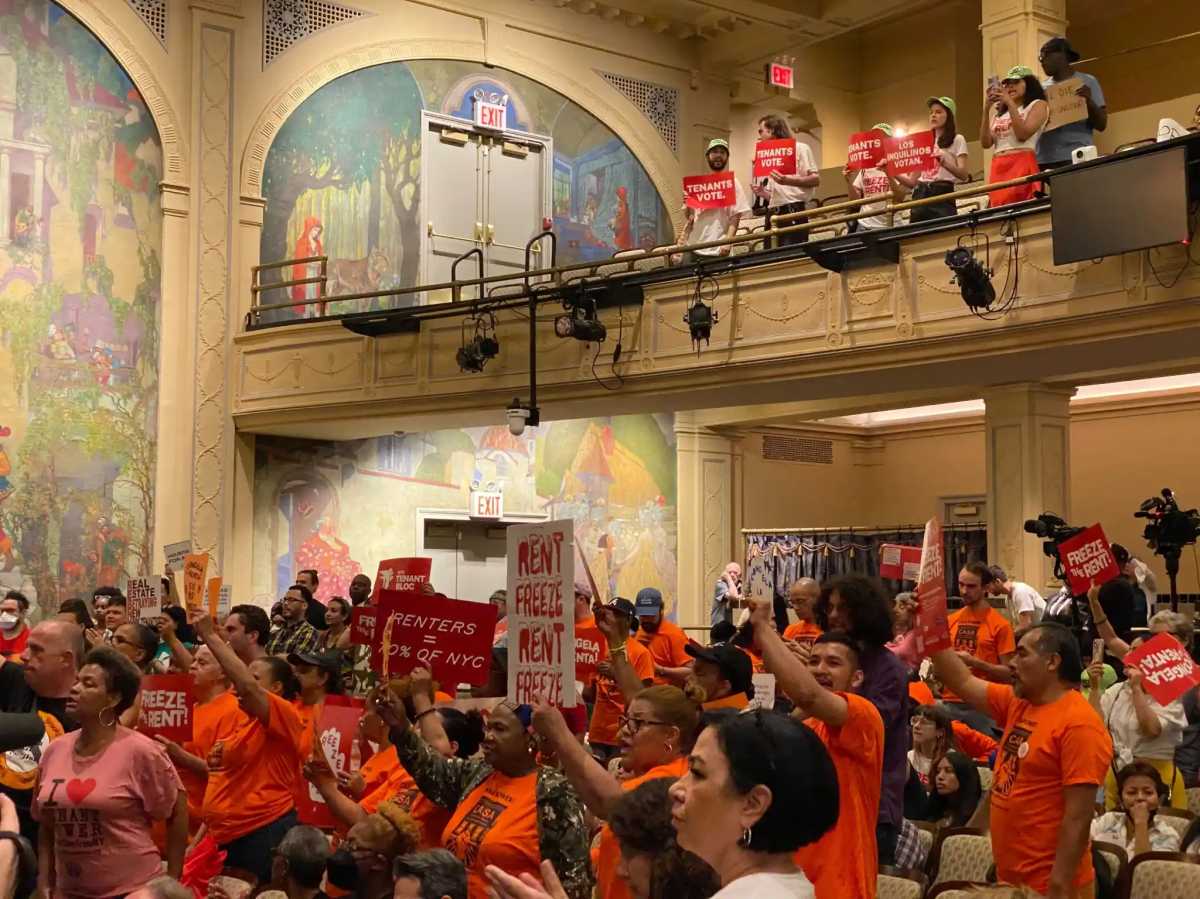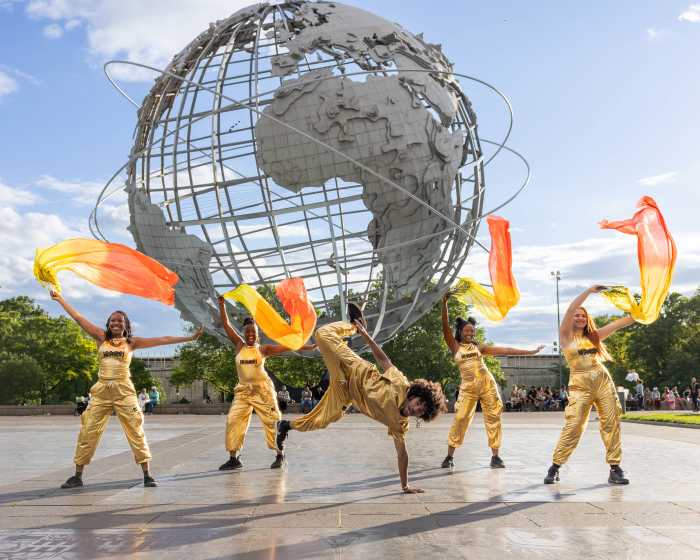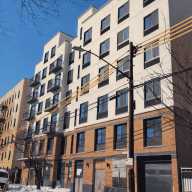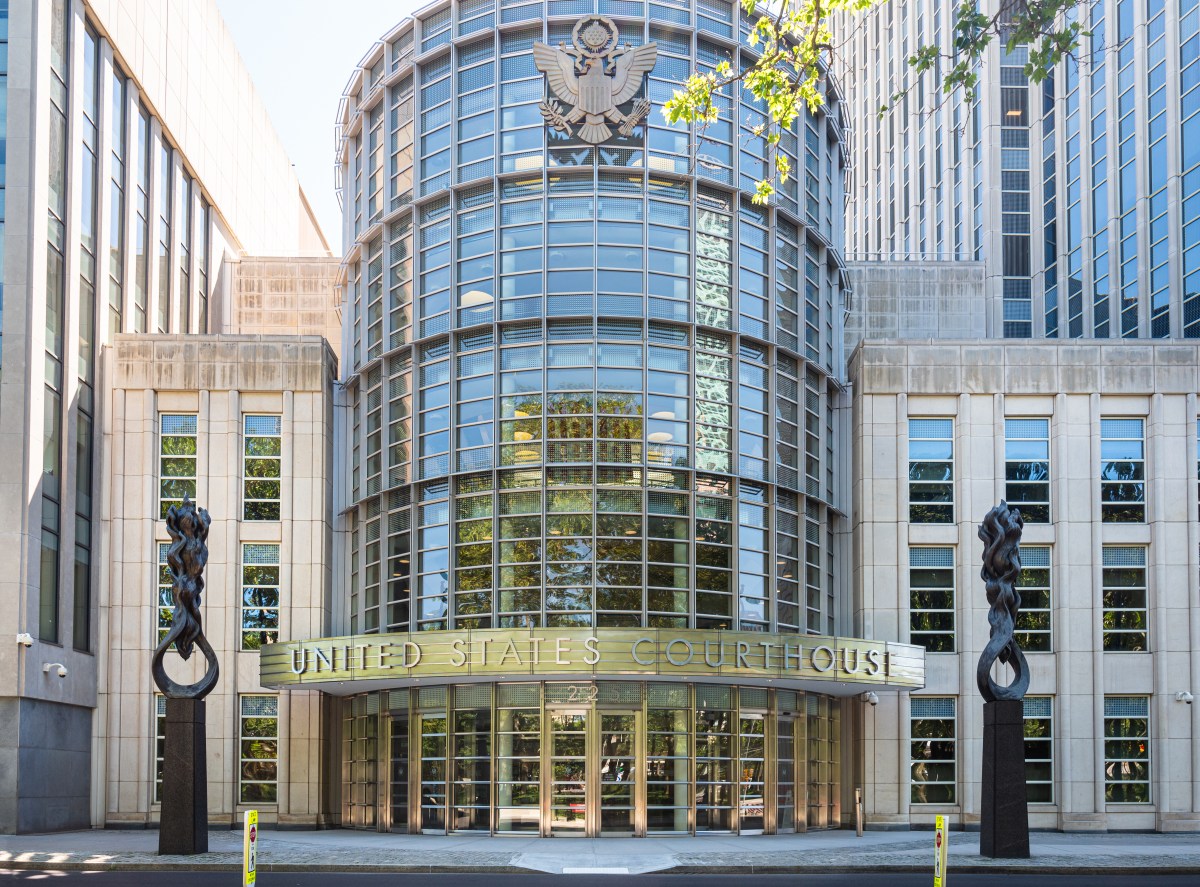The progressive war against peaker power plants in western Queens — long known as “Asthma Alley” — got some additional firepower when Congresswoman Carolyn Maloney held a community roundtable discussion during a House Oversight and Reform Committee session in Astoria on Thursday, Aug. 26.
The special session began with a press briefing in front of the Ravenswood Generating Station in Long Island City with Brooklyn Congresswoman Yvette Clarke, highlighting the urgent need to transition away from peakers in New York. The session then moved indoors for a committee roundtable at the Variety Boys and Girls Club in Astoria, where Maloney was joined by Bronx/Queens Congresswoman Alexandria Ocasio-Cortez as well as community members impacted by peaker plants.
Maloney noted that it’s been reported that more than 3,000 New Yorkers “lose their lives” from health conditions related to particulate pollution annually. She said the city’s power plants are “chiefly responsible.”
“Peakers are the dirtiest and most dangerous smokestack, used at times of peak energy demand and largely concentrated in low-income communities. For the 1.2 million New Yorkers living within one mile of a peaker, rates of asthma and deaths from COVID-19 are severely elevated,” Maloney said. “In addition to the noxious fumes from peaker plants, these residents are exposed to constant pollution from large power plants that run all the time, and chronic vehicle congestion.”
Maloney spoke of Clarke’s PEAKER Act, which would create a tax incentive and a new grant program to help retire peaker plants in historically marginalized communities.
She also said she supports community-driven solutions, such as the PEAK Coalition’s proposals to eliminate half of the city’s 89 peakers by 2025 and all of them by 2030.
“If we follow their lead, my constituents in the Queensbridge, Ravenswood and Astoria Houses will finally breathe a little easier,” Maloney said.
Ocasio-Cortez spoke of the urgency of stopping an expansion of peakers in her district, namely NRG’s controversial proposal to replace an existing peaker plant in Astoria.
“Right now in Astoria, in front-line communities, in low-income communities, in Black communities, immigrant communities, brown communities, Indigenous communities, we know that there is no such thing as cheap energy,” she said. “Because the price of cheap energy has always been our lives, our health, our lungs, our cancer rates.”
Ocasio-Cortez also highlighted solutions she champions, such as the Green New Deal for Public Housing, which she says are essential to empower environmental justice communities.
The hearing was held just hours before a rally in Astoria Park protesting NRG’s Astoria Replacement Project, the same day as one of the New York State Department of Environmental Conservation’s (DEC) public hearings on the proposal, which would replace and upgrade existing generators at the 50-year-old Astoria Generation Station.
NRG Spokesman Dave Schrader said their plan to upgrade the Astoria plant with state-of-the-art technology “that can be converted to green hydrogen in the future is fully consistent with the Climate Leadership and Community Protection Act as it will immediately result in significant reductions in greenhouse gas emissions and supports the expansion of renewable energy resources throughout the state.”
“The project will not only help ensure the lights stay on in New York City but will also bring more than 500 jobs at no cost to taxpayers, while also lowering electricity costs by $1.5 billion in just its first five years of operation,” Schrader said.
He added that NRG is grateful for the public support for the project in hundreds of letters submitted to the Department of Environmental Conservation on NRG’s behalf from neighbors, labor and trade unions.
On Tuesday, Aug. 24, the DEC held the first of four public hearings on the proposal with more than 100 concerned New Yorkers voicing their opposition.
“In 2019, climate advocates across the state demanded that the legislature pass the Climate Leadership and Community Protection Act. This bold and aggressive climate law mandates that 70 percent of our electricity must come from renewable sources by 2030, and that we withdraw from fossil fuels completely by 2050,” Elaine O’Brien, core group member of Queens Climate Project, said following the hearing. “How do we expect to achieve these ambitious goals by building yet another dirty fracked gas power plant in 2021? Governor Hochul and the DEC need to act on behalf of New Yorkers, not greedy fossil fuel corporations like NRG.”


